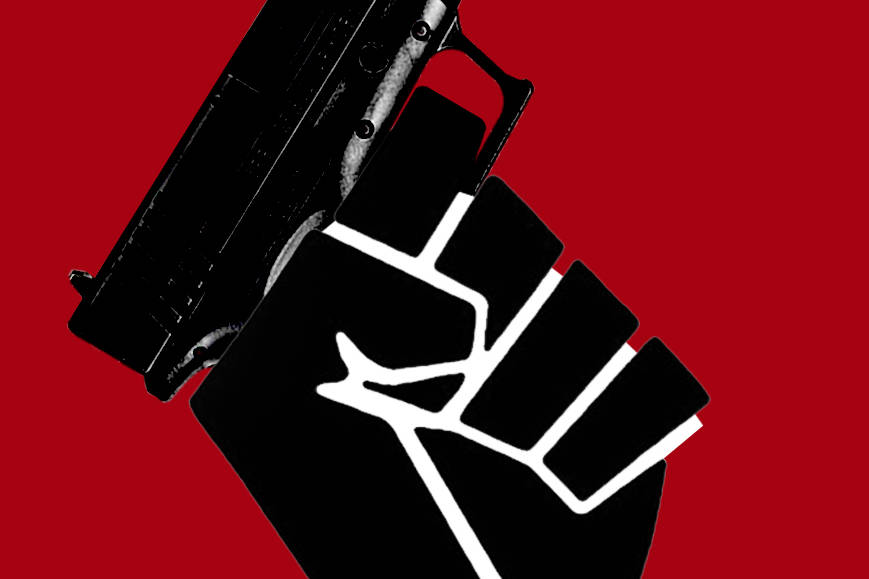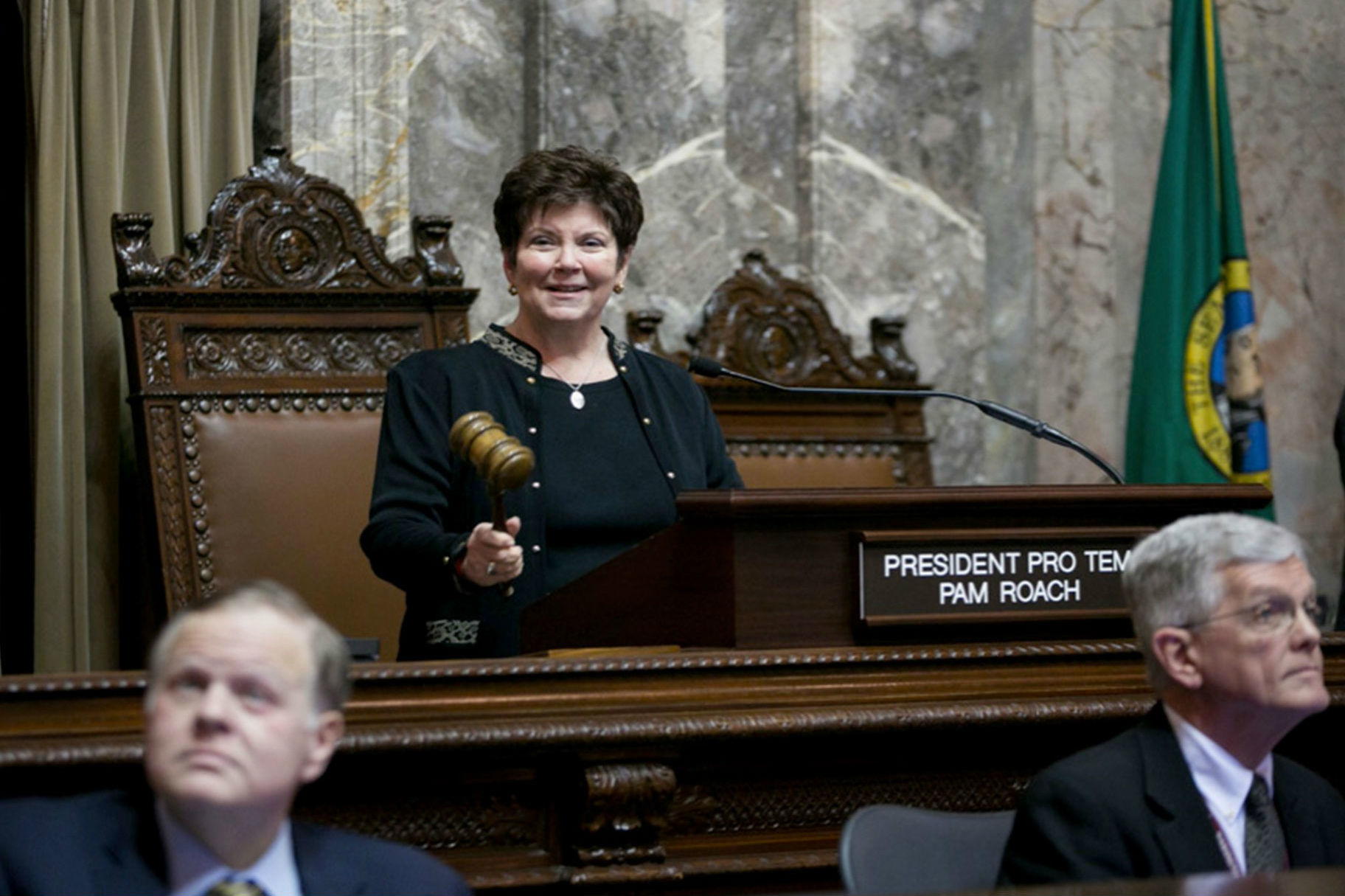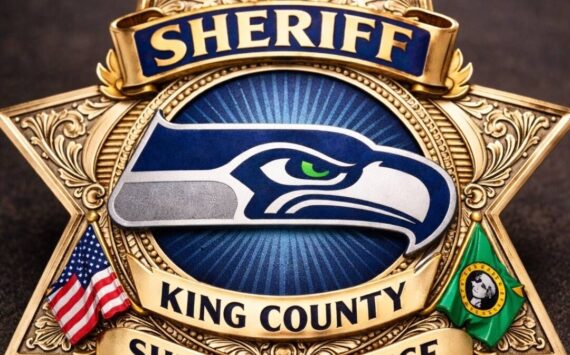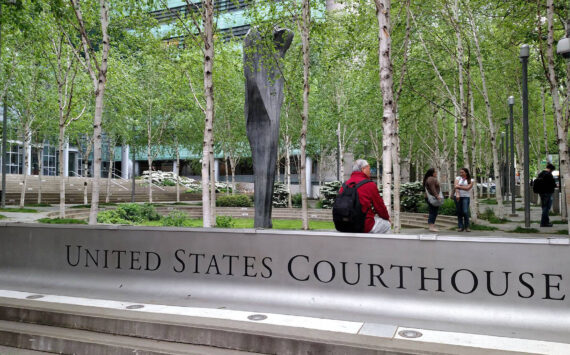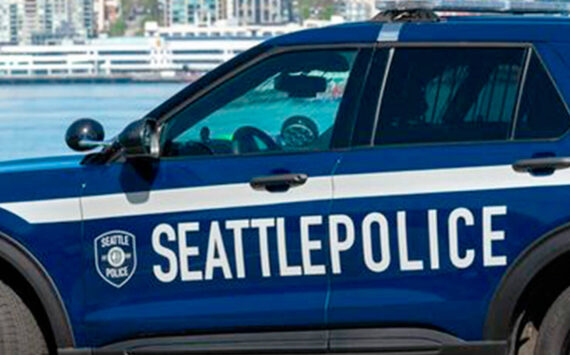The Southern Poverty Law Center catalogued over 1,000 bias-related incidents in the month following the election of Donald Trump. Since then, a climate of perpetual peril has settled over the nation. Here in Seattle, we’ve seen a synagogue defaced with the words “The Holocaust is fake history,” an Islamophobic “anti-Sharia” march in the heart of the city, and a protester shot outside an appearance by anti-trans “free speech” advocate Milo Yiannopoulos at the University of Washington. White-nationalist flyers have been spotted across the city, and even in the ostensibly queer-friendly confines of Capitol Hill transphobic and homophobic street violence occurs with alarming regularity. Those most impacted—the queer community and people of color—are re-evaluating an already fragile sense of safety, which includes re-evaluating their stance on guns.
Steven Sawada is a leftist activist and third-generation Japanese American who bought his first gun in the run-up to the 2016 election. He bought another one after Trump won. Since then he’s been taking fellow leftists and people of color on monthly outings to the shooting range in an attempt to build a sense of collective strength around the feelings of threat engendered by the Trump regime. It’s not a programmatic, organized initiative, but a face-to-face effort to empower and educate people in his personal network of friends and fellow travelers. And it’s not an endeavor he undertakes lightly.
“I fear insurrection. I fear militia violence,” Sawada explains. “I’ll be honest and vulnerable about that. It’s not something I want to stir up fear around, but in terms of the history of racism in this country, look at how things turned out for some people when there was a lack of institutional, systemic response.”
Sawada is far from your typical gun nut. He grappled with the implications of gun ownership before he made his decision, and still feels conflicted. He doesn’t intend to use his guns to protect personal property or even for self-defense against random violence; he doesn’t pack heat in the streets. He allows that his guns only give him the illusion of security. He’s transparent about his reasoning and its contradictions, a noteworthy approach in an ideological milieu in which gun talk is often met with discomfort and disapproval. Progressive gun owners mostly keep mum about their arsenals. “My wife and I have had deep conversations about this. She’s against them, and she very astutely pointed out that gun violence disproportionately falls on women. I agree with that,” Sawada says. “This feeling of insecurity and my response to it is part of the patriarchal system.”
I find Sawada’s open ambivalence on the issue personally compelling. Growing up in the Deep South, I knew my way around guns. My dad, a Vietnam veteran and the son of a cop, used to take my brother and me to the shooting range as kids. When I finished high school I spent some of my graduation money on a 12-gauge shotgun, which I used to blast at old mufflers and abandoned refrigerators in the woods. When I left Florida to move to Seattle, I pawned the shotgun and began my evolution into the pacifist, progressive urbanite that I am now, one who loathes guns and laments the tragically frequent mass shootings they enable. In 2014 I threw a fundraiser for I-594, a successful ballot initiative that requires background checks for all gun purchases in Washington. I am staunchly anti-gun. Or at least I thought I was, until Trump got elected.
Sawada’s struggle to reconcile his desire for a sense of personal security with the broader debate around gun violence and proliferation directly mirrors my own. The only difference is that he chose to make the purchase. I’ve deferred that decision for now.
I spoke with another leftist Seattle gun owner, a mixed-race cis man in his 30s. Unlike Sawada, he’s owned firearms his entire adult life. He asked to remain anonymous, so I’ll call him Albert. In high school he overheard a pair of boys in the locker room discussing their possession of and plans to use “roofies,” the date-rape drug, on a girl that weekend. Albert reported them to the school resource officer, and for the rest of his high-school years received death threats. He took to carrying his grandfather’s buck knife for personal protection, and when he turned 18 he bought a shotgun.
Growing up mixed-race in the Pacific Northwest, Albert read about the anti-Chinese and anti-Sikh riots of the 19th and early 20th centuries in which hundreds of immigrants were attacked, killed, and purged from Seattle and Bellingham by white rioters and militiamen. Albert’s philosophy on armed revolution was informed early on by the Zapatista movement and later by Marxism. His analysis is born of both personal experience and a wide-ranging historical study of liberation movements.
“The inherent contradictions of capitalism are like two fault lines rubbing up against each other just waiting for an inevitable break,” Albert says. “I think it’s gonna happen one way or another, and we’re totally unprepared.”
He was at the Inauguration Day protest in which a Milo Yiannopoulos supporter Albert describes as “that fuckin’ psycho” shot a protester in the stomach. (Albert hadn’t brought his gun that day because he mistakenly believed it was illegal to carry on campus.) He’s had multiple associates doxxed by the alt-right and seen a local bar overrun by far-right Proud Boys. One friend had a pizza sent to his home signed “Milo.” “It was just to say, ‘Fuck you, I know where you live,’ ” he explains.
Last month Albert showed up armed to the counterprotest against the right-wing “anti-Sharia” march. From his perspective, police targeted counterprotesters while Islamophobes threw punches and started fights at Occidental Park, seemingly unhampered by the police. At Portland’s “anti-Sharia” march, also last month, a far-right Oath Keeper militiaman was photographed assisting a police officer in handcuffing a counterprotester, one of the more egregious documentations of the violent fringe making common cause with cops. Incidents like these echo the complicity between law enforcement and anti-immigrant mobs in those riots Albert read about as a younger man. For a person of color, they contribute to a totalizing sense of menace, a feeling that there’s nowhere left to turn for protection but inward to oneself and to those similarly targeted.
Despite the continuous fear for his safety and those of his friends, Albert warns against armed adventurism and vigilantism on the left, of attempting to cobble together leftist militias for the current crisis without laying the proper groundwork. “Pulling out guns when your side has no idea what to do with them, no training or discipline—that’s a recipe for disaster. On the other hand, without the threat of violence … ” his voice trails off. “We’re already being threatened with violence and we’re already having violence enacted upon us. Look at the Portland stabbing to know that this stuff’s already going down.”
Right now, Albert’s focus is on teaching unarmed self-defense to the local LGBTQ community. But he has no intention of getting rid of his guns, and he’s not interested in justifying their necessity to other leftists. “As long as we have a white-supremacist system where police, military, and rich white people have guns, why would you want to disarm the people most likely to be affected by that violence? I have no plans to get rid of my guns at any time if I can avoid it.”
Sawada, the newly forged gun owner, is more circumspect. “I don’t want to lose that feeling—that impact—we felt after the election. I want to make sure we don’t lose sight of what’s happening to our most vulnerable and marginalized folks. We can’t lose sight of that. Black Lives Matter still matters.” He says that if the feeling of imminent danger subsides, he’ll consider getting rid of his guns. “When things calm down, I want to reassess.”
news@seattleweekly.com
